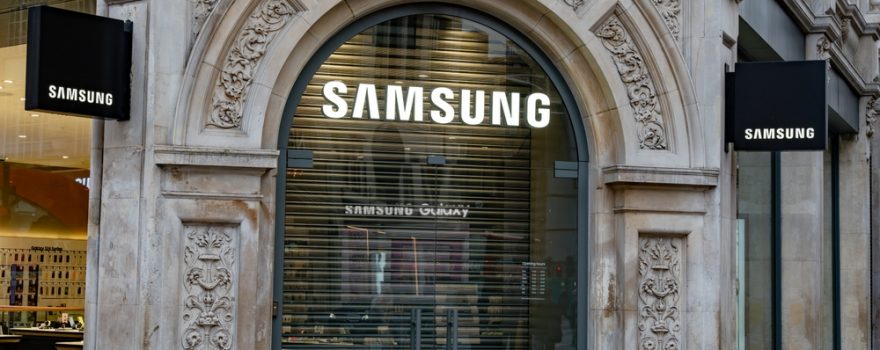
Samsung Electronics Co. has reported its fastest pace of sales and profit growth in years, driven by a rebound in memory chip demand amid accelerating global AI development. The world’s largest maker of memory chips and smartphones posted a remarkable 15-fold increase in operating profit to 10.4 trillion won ($7.5 billion) for the June quarter, surpassing analysts’ projections. Sales surged by about 23%, the largest rise since the highs seen during the Covid-19 pandemic in 2021. This positive performance pushed Samsung’s stock up by 3%, reaching its highest level since January 2021.
The impressive results highlight the recovery of the $160 billion memory market from a severe post-Covid downturn, fueled by a surge in data centers and AI advancements. According to CLSA estimates, this demand caused average memory chip prices to rise by 15% from the previous quarter, aiding Samsung’s largest division in reversing last year’s losses.
Samsung’s depositary receipts in London increased by roughly 4% at 9:45 a.m. New York time, sparking a broader rally across the chip sector. Companies such as Infineon Technologies AG, STMicroelectronics NV, ASML Holding NV, and Arm Holdings Plc also saw their stocks rise.
Both DRAM and NAND prices were boosted by the demand for AI servers and enterprise data storage, helping to reverse inventory valuation losses, said Sanjeev Rana, an analyst at CLSA Securities Korea. Samsung’s foundry, or contract chipmaking operations, also benefited from improved IT demand, he added.
South Korea’s government announced that the country exported a record number of semiconductors in June, contributing to an $8 billion trade surplus, the largest since 2020. Samsung is set to announce final earnings with a detailed divisional breakdown on July 31. While the company is capitalizing on a broader industry recovery, investors remain wary of its position in the burgeoning AI chip market against rival SK Hynix Inc.
Despite its achievements, Samsung’s shares have lagged behind its smaller competitor, SK Hynix, which has become the leading supplier of high-bandwidth memory (HBM), a crucial component of AI hardware. Samsung has struggled to get its latest HBM chips certified by Nvidia Corp., the world’s most valuable chipmaker due to the high demand for AI accelerators.
Samsung is facing internal challenges as well, with union organizers planning a three-day walkout among its 28,000-plus members — including key chip plant employees — over a pay dispute. This proposed action follows a minor strike last month, the first in the company’s 55-year history. It remains uncertain how many employees will participate in the walkout set for Monday.
In the long term, Samsung aims to secure more business in AI memory while addressing concerns about oversupply. SK Hynix recently reported its fastest revenue growth pace since at least 2010, leading to a 60% rally in its shares since the start of 2024, compared with an 8% gain for Samsung’s stock.
In an unexpected move, Samsung appointed Jun Young Hyun, a memory chip veteran and former leader of Samsung SDI Co., as the new head of its most crucial business line, replacing Kyung Kye-hyun. This change comes as Samsung’s strong smartphone sales helped the company navigate through sluggish chip demand in previous quarters. South Korea’s largest company is hosting a Galaxy Unpacked event in Paris next week to maintain momentum for its phones.
For more detailed insights, read the full article on Bloomberg.

 Get in Touch
Get in Touch 


